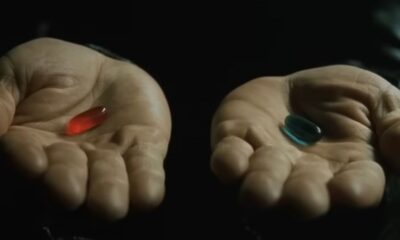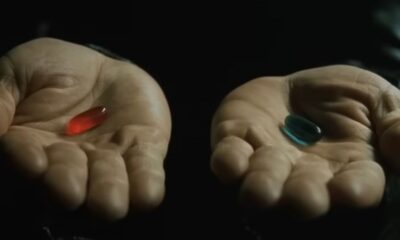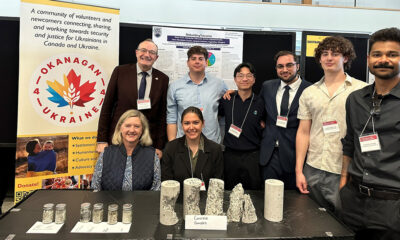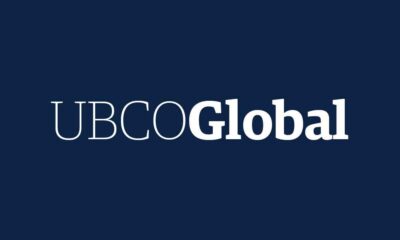Science
UBC Study Proves Matrix Theory Impossible, Redefines Reality

Research from the University of British Columbia Okanagan (UBCO) has challenged the popular notion of living in a simulated reality, commonly referred to as “The Matrix.” A study led by Dr. Mir Faizal, in collaboration with colleagues Dr. Lawrence M. Krauss, Dr. Arshid Shabir, and Dr. Francesco Marino, indicates that the idea of a computer simulation of our universe is not only unlikely but mathematically impossible.
The findings, published in the Journal of Holography Applications in Physics, assert that reality operates on principles beyond the capabilities of any algorithm. UBCO’s official announcement underscores the significance of this research, stating, “They prove something far more profound: the universe is built on a type of understanding that exists beyond the reach of any algorithm.”
The study addresses the notion that if our universe were a simulation, it could potentially lead to a recursive series of simulations. Dr. Faizal explained, “If such a simulation were possible, the simulated universe could itself give rise to life, which in turn might create its own simulation. This recursive possibility makes it seem highly unlikely that our universe is the original one.” He noted that this concept, once thought to be beyond scientific inquiry, is now being scientifically explored.
Quantum mechanics has significantly reshaped our comprehension of reality. UBCO highlights that contemporary theories, particularly quantum gravity, suggest that space and time may not be fundamental elements of the universe. Instead, they might emerge from deeper structures rooted in pure information. This shift in understanding leads to a critical conclusion: the foundational information cannot be adequately described through computational means alone.
Dr. Faizal illustrated this point by comparing a computer’s operation to following recipes step by step. He stated, “No matter how complex, some truths can only be grasped through non-algorithmic understanding—understanding that doesn’t follow from any sequence of logical steps.”
The research team demonstrated that a complete description of physical reality cannot be derived solely from computational theories of quantum gravity. Dr. Faizal emphasized, “Therefore, no physically complete and consistent theory of everything can be derived from computation alone. Rather, it requires a non-algorithmic understanding, which is more fundamental than the computational laws of quantum gravity and therefore more fundamental than spacetime itself.”
Dr. Krauss remarked on the profound implications of their findings, stating, “The fundamental laws of physics cannot be contained within space and time, because they generate them. A truly fundamental theory of everything has long been hoped to describe all physical phenomena through computations grounded in these laws. Yet we have demonstrated that this is not possible.”
The research represents a significant milestone in scientific inquiry, suggesting that if reality is fundamentally non-algorithmic, it cannot be simulated. “Any simulation is inherently algorithmic—it must follow programmed rules,” Dr. Faizal stated. “But since the fundamental level of reality is based on non-algorithmic understanding, the universe cannot be, and could never be, a simulation.”
For more detailed information on the study, the full release can be accessed on the UBCO website.
-

 World4 months ago
World4 months agoScientists Unearth Ancient Antarctic Ice to Unlock Climate Secrets
-

 Entertainment4 months ago
Entertainment4 months agoTrump and McCormick to Announce $70 Billion Energy Investments
-

 Lifestyle4 months ago
Lifestyle4 months agoTransLink Launches Food Truck Program to Boost Revenue in Vancouver
-

 Science4 months ago
Science4 months agoFour Astronauts Return to Earth After International Space Station Mission
-

 Technology2 months ago
Technology2 months agoApple Notes Enhances Functionality with Markdown Support in macOS 26
-

 Top Stories3 weeks ago
Top Stories3 weeks agoUrgent Update: Fatal Crash on Highway 99 Claims Life of Pitt Meadows Man
-

 Sports4 months ago
Sports4 months agoSearch Underway for Missing Hunter Amid Hokkaido Bear Emergency
-

 Politics3 months ago
Politics3 months agoUkrainian Tennis Star Elina Svitolina Faces Death Threats Online
-

 Politics4 months ago
Politics4 months agoCarney Engages First Nations Leaders at Development Law Summit
-

 Technology4 months ago
Technology4 months agoFrosthaven Launches Early Access on July 31, 2025
-

 Entertainment4 months ago
Entertainment4 months agoCalgary Theatre Troupe Revives Magic at Winnipeg Fringe Festival
-

 Top Stories7 days ago
Top Stories7 days agoFamily Remembers Beverley Rowbotham 25 Years After Murder



















